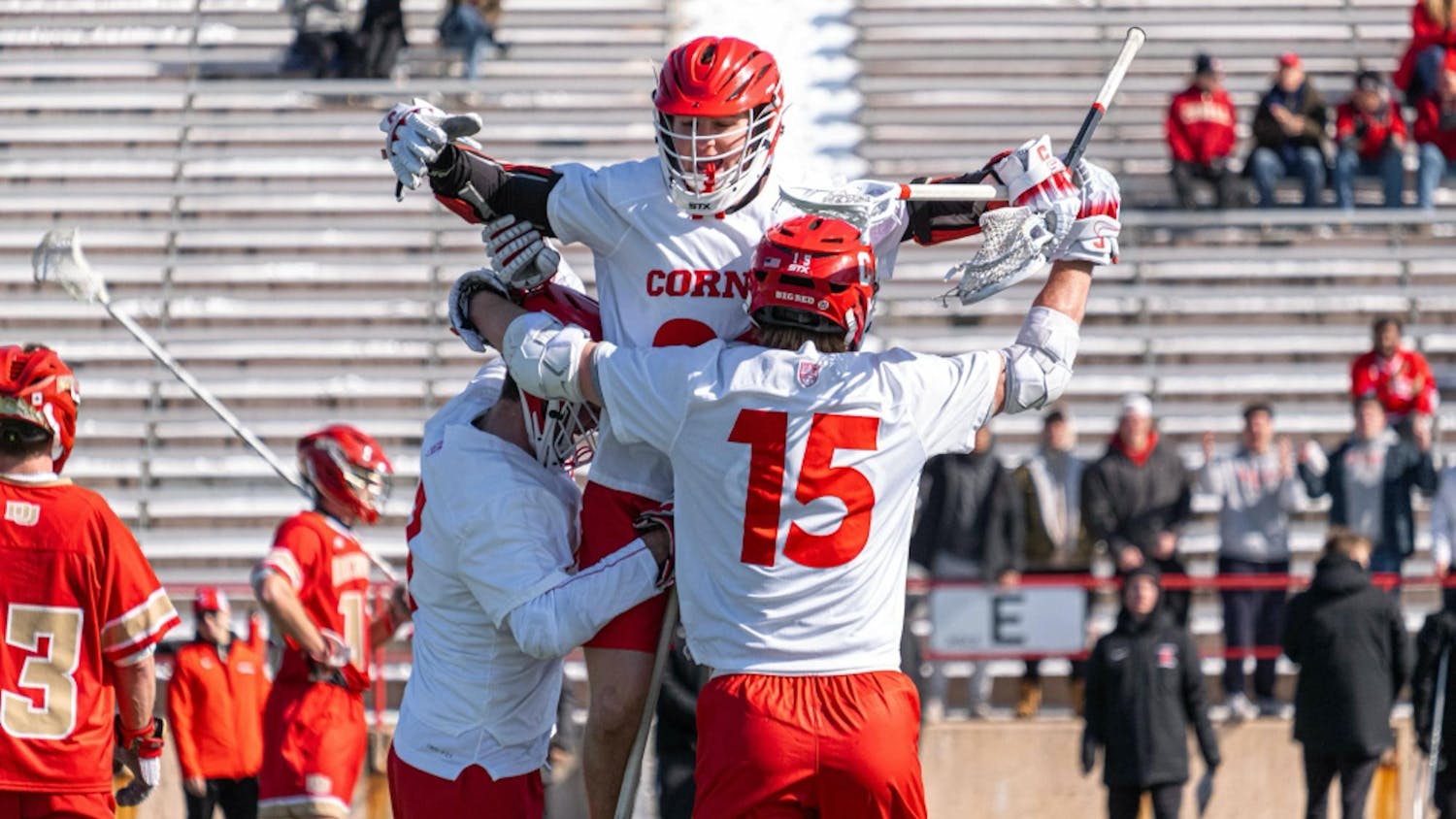Cornell men’s hockey defenseman Alex Green will be one of the first to tell you he was surprised by how his first collegiate season panned out in 2017-18: immediately thrust into top-four minutes, receiving valuable time on both special teams units and, most notably, being rewarded with an NHL draft selection by the Tampa Bay Lightning.
“I thought that I eventually thought I could get to this point, but I didn't think it would be this soon,” he told Cornell Big Red in Nov. 2017 of his quick success last season. “I didn't think I'd have this much of a role at this point, and I was kind of surprised, to be honest.”
Green’s previous prowess made his concussion in the third game of this season all the more frustrating. Not only had Cornell lost the first of what would become a handful of skaters in the first half of the season to injury, but it also lost an up-and-coming, top-four defenseman who was a staple of Cornell’s top-ranked defense a year ago.
Shortly after picking up an assist on Cornell’s first goal in a Nov. 2 game against Yale, Green was sent head-over-heels in the neutral zone, landing on his head before being stretchered off the ice. Early prognosis for the injury was positive — “All I can say is that it’s much better than what it looked,” associate head coach Ben Syer said at the time — but the recovery, as it can be with concussions, took much longer than originally anticipated.
Green returned as a full participant in practices by Dec. 27, according to head coach Mike Schafer ’86. After that, it was just waiting on medical clearance from the training staff.
It took another four weeks for his reentry to finally come, but Green was cleared to return to game action this past weekend against Union and RPI after missing 16 games and three months of play.
“It was definitely a sigh of relief,” Green said Tuesday of his long-awaited return. “It was a long time sitting up in the stands not playing, so it was a lot of fun to suit back up and play with the team.”
“I was happy for him. It’s been a long time since early in November for him,” Schafer said. “So now, [with] that consistency of practice and games, I think it's hard to be out that long and you're excited to get back into it. And now it’s about following gameplan and for him to get playing. It was exciting to see him get back into game action.”
Green’s first weekend back in action was nothing to write home about: a pair of shots on goal alongside a minus-one plus/minus and a minor penalty amid limited minutes as he eases back in. But Friday’s game represented both the end of a long, grueling recovery process and just the second time Cornell skated with a fully healthy defensive corps this season — albeit unaided by senior defenseman Brendan Smith, who sat out Saturday’s game with an injury.
“I definitely think there was a little bit of a learning curve, but the team helped me readjust and I just tried to play simple,” Green said. “So it wasn’t anything crazy, but there was definitely a little bit of a learning curve.”
This was the first concussion of Green’s playing career and the longest recovery time he’s ever needed for an ailment, he said. Concussions are nothing new for Cornell, the NCAA and hockey players at every level. But this was a unique recovery that Green has never personally known, and one he knew he could not recover from quickly — as frustrating as it was.
“It was tough, it was really tough, but the medical staff told me you can’t rush these things, obviously, because you only have one brain,” Green said. “Unlike a shoulder injury or something of that nature, you can’t fight through a concussion, so it was kind of being patient and staying with the process. That’s how we approached things.”
“I think the toughest part was just some days you would feel really good and then the next day you would feel really crappy,” he added. “So it was kind of just a roller coaster of emotions up and down. That was definitely the hardest part.”
With so much lost time now in the rearview, Green‘s focus is set on the future. As he makes his way back to full speed, he slots back into a defensive corps which is finding its identity from last season and now sits as the country’s No. 7-ranked unit in goals allowed per game (2.05).
Personally for Green, improving his offensive capabilities has been the focus since resuming skating, and because he hasn’t had to worry about blindside hits from teammates in practice, he’s been able to take a mental step back, be patient with the puck and hone in on that area of his play.
“He’s been practicing a lot over the last month, so even the practices helped him because he hasn't been able to be physical,” Schafer said. “So he’s had to use better technique as far as defensemen are concerned and be a little bit more patient. I think that’s helped his overall game.”
“I’m definitely looking forward to helping the team offensively,” Green added. “It’s definitely a goal of mine to be offensive, so I just have to pick back where I left off before I got hurt.”

Top-4 Defenseman Green Eager to Contribute to Men’s Hockey After Months-Long Injury
Reading time: about 5 minutes
Though Green's Nov. 2 injury looked scary, many believed that his absence would be short. Three months later, he has just returned to game action.
Read More










